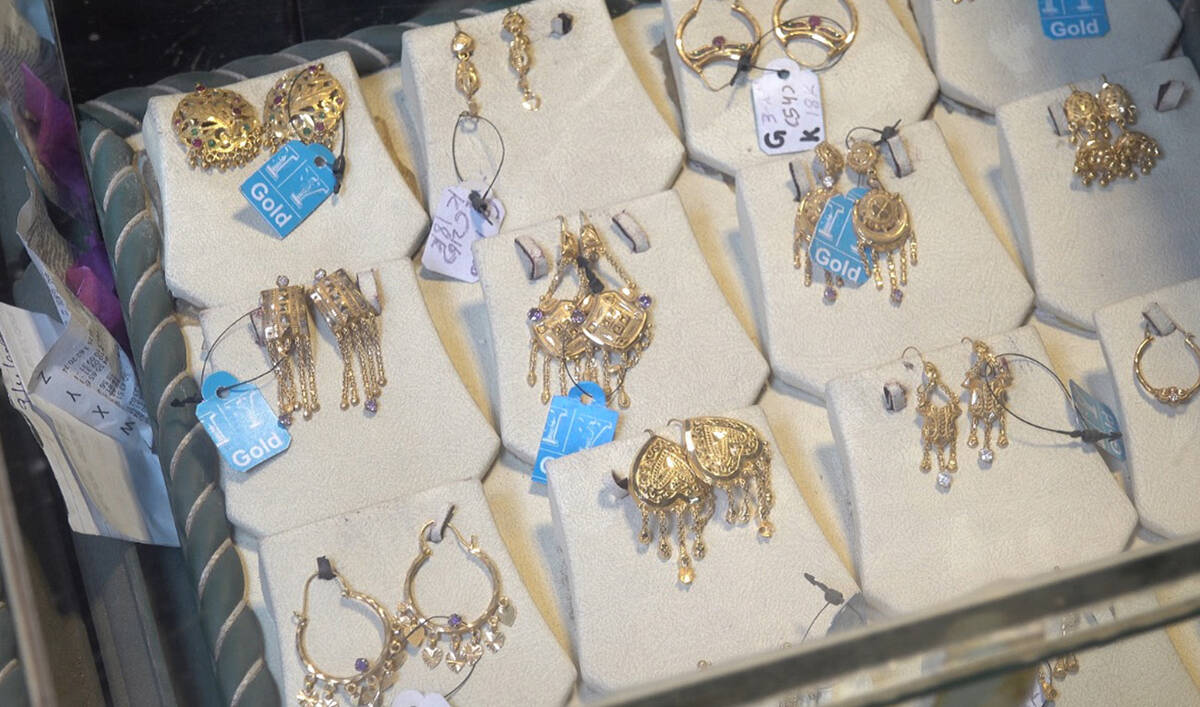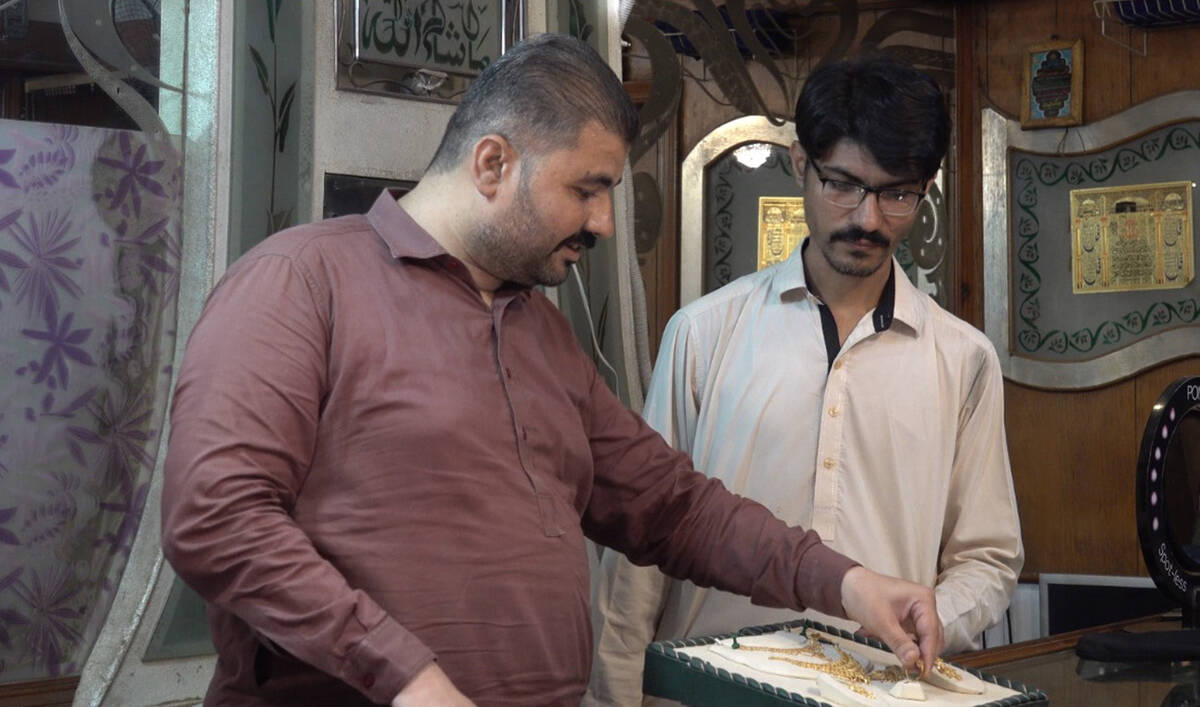KARACHI: As US President Donald Trump ratcheted up his tariff war on the world, gold kept climbing in lockstep to reach a succession of record highs, including in Pakistan.
In recent weeks, gold has globally offered investors a safe haven from the chaos that has enveloped many financial markets since Trump’s tariff announcements on April 2. But at the same time, it has dampened consumption during the wedding season in Pakistan, as buyers and jewelers feel the brunt of high prices, with one tola, or nearly 12 grams, costing about Rs348,700 ($1,200). The average monthly income in Pakistan, meanwhile, is roughly Rs70,000 ($248).
“We can see that gold is hovering around an all-time high,” Kamal Ahmed, a commodities analyst at AKD Securities, told Arab News, adding that gold prices in Pakistan had surged 38 percent since the beginning of the year.
The increase, he said, was triggered by geopolitical tensions, the Russia-Ukraine war and macroeconomic uncertainty worsened by the latest US trade actions.
“When there is uncertainty in the economy, when there is uncertainty in the geopolitical situation, people like to invest in gold,” Ahmed explained, adding that central banks around the world had also bought “a lot of gold” recently to hedge against a possible tariff-driven recession.
In international markets, gold touched a record $3,500 per ounce, about 28.35 grams, on April 22, pushing local prices in Pakistan to fresh highs.

Gold earrings on display in a jewelry shop in karachi, Pakistan on April 26, 2025. (AN Photo)
Analysts suggest more pain ahead.
“I think gold might test $3,800 per ounce this year, and if it breaches that level, you could see $4,500 per ounce by the end of 2025,” said Ahmed.
Global brokerage firm JP Morgan has also predicted gold could rise beyond $4,000 per ounce next year, warning of growing recession risks tied to inflated US tariffs.
The impact on Pakistan, on a tricky path to economic recovery under a $7 billion IMF bailout program, could be severe.
“Investors would prefer to buy gold than invest in equities because they seek a very safe option,” said Ahmed.
For now, the math is simple: If Trump continues his trade war against China, and increases tariffs from the 10 percent base on other countries after his 90-day pause, then it’s likely that gold will continue to rally. But if a compromise with Beijing is worked out that allows both parties to save face, and other countries reach deals with Trump that largely preserve global trade, then the case for gold looks less secure.
On Monday, gold retreated as easing US-China trade tensions boosted investors’ risk appetite and dented demand for safe-haven assets such as bullion, while a stronger dollar also piled on the pressure.
In the domestic market, the price of 24-karat gold per tola fell by Rs3,300 on Monday, bringing it down to Rs348,700 ($1,200). The price of 10 grams of 24-karat gold also saw a decrease of Rs2,833, settling at Rs298,950 ($1,063).
But prices are still too high for most consumers and are dampening the spring/early summer wedding season in Pakistan, where gold is an intrinsic part of celebrations.
At a jeweler’s shop in Karachi’s oldest Sarafa Bazaar, Fatima, a housewife who only gave her first name, stared last week at rows of glittering gold sets she could no longer afford.
“I was buying gold for my daughter’s wedding that we have delayed for now because the prices of gold are very high,” Fatima said. “You either don’t give gold to your children at all or delay the marriage.”
She said she hoped prices might ease after Eid Al-Adha in June.

Jeweler, Muhammad Ishaq, observes a gold jewelry set in his shop in Karachi, Pakistan, on April 26, 2025. (AN Photo)
“The prevailing rates have made gold unreachable for the poor,” M. Iqbal, director of the All Pakistan Sarafa Gems & Jewelers Association, said, estimating that about 65 percent of traders in the gold market were actively buying, further driving up demand and prices.
“It’s risen beyond their purchasing power now. Gold has become an investor’s business only.”
He warned that if the tariff war dragged on, gold prices in Pakistan could swell beyond Rs500,000 ($1,780) per tola.
“People are managing their weddings by purchasing lesser quantities of gold,” Iqbal warned. “People who used to buy two or more tolas are now purchasing only half of it, and that too because it’s a tradition.”
Muhammad Yaqoob Ishaq, a jeweler whose family has traded gold for more than a century, said many customers were now opting for artificial jewelry.
“Nowadays artificial jewelry is trending in weddings,” he said. “People have been buying artificial jewelry or using silver ornaments that are gold coated.”

















